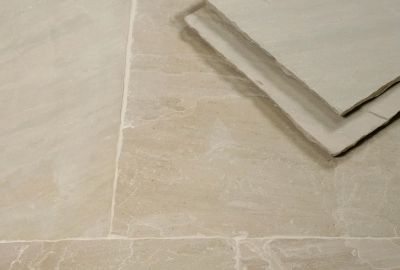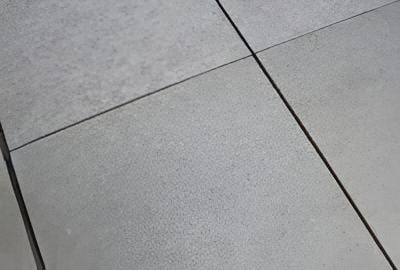What is the best tile adhesive to use?
It goes without saying that one of the key elements you need to think about when tiling any room is the adhesive you use to attach your tiles to the wall or floor.
But no matter whether you picked a hardy natural stone for your bathroom flooring, or some flashy porcelain tiles to add the finishing touch to your kitchen, it’s important you take the time to find the best tile adhesive for the job - otherwise, you run the risk of your tiles cracking or falling off entirely.
So, to help you find the best adhesive for tiles in your home, here’s everything you need to know about using choosing the right product for different surfaces and materials.
What is tile adhesive?
Without going into too much detail, tile adhesive is a unique form of cement-based glue that is specifically designed to attach tiles to your walls or floors. Flexible but rigid, tile adhesive is crack and moisture-resistant, making it perfect for use in humid environments - like your kitchen and bathroom.
However, not all tile adhesive is created equally. The surface (or substrate) that you plan to attach your tiles to, will determine the type of adhesive you need, ensuring your new tiles don’t come off your wall or floor only a few weeks after application.
If you’re interested in learning more about how your substrate can impact your installation, explore our guides to tiling on concrete and tiling onto wooden floors.
What are the different types of tile adhesive?
When it comes to tiling adhesive, there are two basic types - powdered adhesive and ready-made pastes.
Ready-mixed tile adhesive
Ready-made tile adhesive pastes are as they sound. They come pre-prepared and can be used straight out of the bucket, making them an ideal quick solution option if you only have a few small tiles that need replacing.
Powdered tile adhesive
Powdered adhesives, on the other hand, require a bit more effort, requiring you to mix water with them in order to form the adhesive paste. However, powdered adhesives offer a much stronger bond than their ready-made counterparts, and in many cases, will dry quicker as well.
How to choose an adhesive for your tiles?
As you’ve no doubt guessed, there are several things you’ll need to consider before settling on which tile adhesive to buy. And to make sure you choose the right adhesive for your needs; we recommend asking yourself the following questions:
1. What material are your tiles made from - different tile materials will require different glues.
2. What surface are you wanting to bond your tiles to - different glues are needed for different surfaces.
3. What is the condition of this surface - surfaces in a bad condition will be harder to bond your tiles to.
4. How long can you wait before walking on floor tiles or grouting wall tiles - the longer you can leave your tiles, the better the adhesive will set.
For example, if you plan to tile your floor with many large panels, then a powdered adhesive with a higher absorption rating will likely be your best option.
In many cases, failure to ask some or all of these questions may very well result in your new tiles cracking, coming loose, or debonding entirely from their surface, leaving you with yet more repairs to carry out. For more advice and help around choosing the best adhesive for tiles, get in touch with our friendly team of experts.
The best tile adhesive by surface type
Discover what tile adhesive to use when tiling different floor surfaces and settings, and the reasons why each might require a different type.
What is the best adhesive for floor tiles?
When it comes to the best adhesive for floor tiles, it’s typically advised that you use powdered options. Its increased strength and absorption make it ideal for handling the wear and tear that comes with constant foot traffic, and its quick drying times mean you won’t have to wait too long before grouting it.
What is the best tile adhesive for wall tiles?
For your wall tiles, the type of adhesive you use is up to you. Ready-made adhesive might be better if you only need to tile a small area, and its slower drying time will give you a greater degree of time flexibility to tile a large area with smaller tiles.
However, if you plan to have large tiles on your walls, then we recommend using a powdered adhesive, as this will ensure the bond is strong enough to hold your tiles in place.
What is the best adhesive to use with underfloor heating?
If you’re planning to tile over wet underfloor heating or electric underfloor heating, then you will require a flexible adhesive, such as Mapei S1 White Rapidset Adhesive. This will allow your tiles and adhesive enough room to flex as your floor expands and contracts with different temperatures.
The best tile adhesive by stone type
Now we advise on the adhesive you should choose depending on your chosen style tile type, from natural stone and marble to porcelain tiles.
What is the best adhesive for natural stone tiles?
With natural stone tiles, we recommend a high specification, rapid setting, and flexible adhesive, such as Mapei S1 White Rapidset Adhesive. Mapei S1 White Rapidset Adhesive is perfect for use with stone, being formulated specifically for use with these sorts of tiles.
What is the best adhesive for porcelain tiles?
For porcelain tiles, such as marble-effect tiles, we recommend Tilemaster Setaflex Rapidset White Adhesive, a quick setting, and flexible adhesive. Another high-grade adhesive, Setaflex is suitable for external use, as well as with underfloor heating, drying so fast that you can grout your tiles after just a few hours.
What is the best adhesive for marble tiles?
For products such as natural marble, it is often prudent to use a two-part adhesive system with a latex additive, such as Mapei Granirapid. This is specially formulated and recommended for use with marble tiles that have a reinforcing mesh on the back.
With this knowledge in hand, you should know exactly what to look for when you’re next installing or re-applying tiles in your home. Of course, if you still want some expert advice on the matter, get in touch with the Stone Superstore experts!
Our team is on hand to help you with all your tiling needs, ensuring you can find the right material for the job at hand. Contact us today for more information, and in the meantime don’t forget to browse our tile installation advice hub for more articles like this one.



